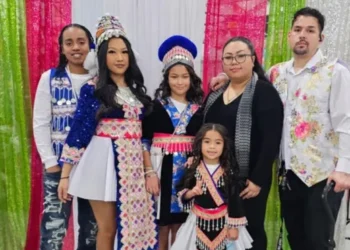In a troubling twist of fate, 26-year-old Venezuelan asylum seeker Franco José Caraballo Tiapa found himself deported to one of the world’s most infamous prisons, all due to a misinterpretation of his tattoos. U.S. immigration officials alleged that his body art signified membership in Venezuela’s notorious Tren de Aragua gang—a claim his family vehemently denies.
Caraballo’s ink includes a rose, a lion, and a razor blade on his neck, symbolizing his profession as a barber. Additionally, he bears two tattoos honoring his eldest daughter, Shalome: a pocket watch set to her birth time and her name emblazoned across his chest. His relatives assert these tattoos are personal expressions, devoid of any gang connotations.
Attorney Martin Rosenow, representing Caraballo, emphasized, “He’s just a normal kid… he likes tattoos—that’s it.” Rosenow challenges the basis of the deportation, highlighting that Tren de Aragua members typically don’t use specific tattoos to signify affiliation. “Experts in Venezuela who study the gang have all stated that there are no tattoos that associate gang members,” he noted.
Caraballo entered the U.S. in October 2023, seeking refuge. His family describes him as a devoted father and hardworking barber, with no ties to criminal activities. Despite this, he was apprehended in Dallas and deported under policies targeting individuals suspected of gang involvement.
This incident underscores broader concerns about the reliance on superficial indicators, like tattoos, to determine gang affiliation. Many argue that such practices can lead to wrongful deportations, especially when cultural or personal symbols are misinterpreted.
Caraballo’s family continues to advocate for his release, hoping to rectify what they see as a grave injustice. They urge authorities to reconsider the evidence and acknowledge the personal significance of his tattoos, separate from any gang-related implications.








